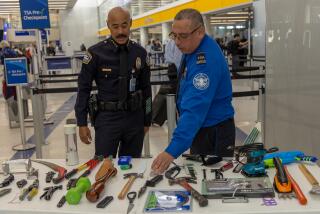Honduras conservative leads in controversial election
Reporting from Mexico City and Tegucigalpa, Honduras -- Hondurans voted Sunday for a new president, many hoping that despite the questions surrounding the election they could restore legitimacy to their national government five months after a military-backed coup ousted President Manuel Zelaya.
Official results late Sunday gave an insurmountable lead to Porfirio Lobo, a wealthy businessman from Honduras’ political elite and candidate of the conservative National Party. His closest opponent conceded defeat.
Who won the election, however, was secondary to the drama swirling around the vote. The international community and the Honduran public are divided over whether the election should be recognized in the wake of the coup, in which Zelaya was deported on June 28.
Zelaya called for his supporters to boycott Sunday’s vote.
“These elections are illegitimate,” he told The Times in an interview from the Brazilian Embassy in Tegucigalpa, the Honduran capital, where he took shelter after sneaking back into the country on Sept. 21.
It was difficult to determine turnout, but one U.S.-sponsored observation group reported that Tegucigalpa had less than 50%. Army patrols were seen in some poorer neighborhoods, where support for Zelaya is strongest.
The only pro-Zelaya candidate pulled out of the race, leaving two conservative factions with close ties to the military as the front-runners.
Despite the political and diplomatic chaos that has engulfed Honduras for the last few months, Sunday’s vote was relatively peaceful. In Honduras’ second city, San Pedro Sula, police fired tear gas and water cannons at several hundred pro-Zelaya demonstrators, injuring and detaining an undetermined number of people, witnesses said.
The international community, which failed in its efforts to reverse the first coup in Central America in 16 years, is split over whether to recognize the results of the vote -- with the United States at odds with much of Latin America.
After initially condemning the coup vigorously, Washington ultimately decided to support the election with the hope that the country could move on. Many other nations, however, argued that a de facto government like the one that replaced Zelaya could not be trusted to conduct fair elections. No major international election-monitoring agency agreed to observe the vote.
Experts say the U.S. stance has marred the Obama administration’s hopes of improving Washington’s rancorous relationship with Latin America.
Voters expressed hope that they could pull their country out of the isolation and economic sanctions imposed by the international community to punish instigators of the coup.
“This election is a first step towards peace,” Wilfredo Andino Vanegas, a 65-year-old businessman, said after casting his ballot at a downtown sports center. “But politically it will not resolve the situation because there will always be great divisions here.”
Vanegas said Zelaya ought to be pardoned and allowed to live in Honduras as a way to ease tensions.
Another voter, Juan Antonio Castro, an accountant, said he thought the vote would improve Honduras’ international standing but not completely resolve the crisis. “I hope whoever wins forms a unity government that makes the social changes this country needs,” he said.
Pharmacist Roman Meza, who said he was voting for front-runner Lobo, wanted to see Zelaya in jail. “These elections will put a stop to Mel Zelaya,” he said, using the ousted leader’s nickname.
Lobo voiced hope that the election would “consolidate a government that can bring us together.”
Zelaya’s supporters, who accuse the old guard of perpetuating a system of extreme economic disparity, were having none of it.
“This is an electoral farce,” said Rafael Alegria, a leader of the protest movement that rose in the deposed president’s defense. “How can you have legitimate elections if the regime is not legitimate?”
Carlos Roberto Hepburn, 74, refused to vote. He said his younger brother was one of the army officers who dragged Zelaya from his home on the day of the coup. But he is siding with the opposition. “Not voting,” he said, “is the correct thing to do.”
Zelaya, a timber tycoon whose shift to the left alienated Honduras’ well-entrenched elite, was deported to Costa Rica. He was deposed as he explored the possibility of changing the constitution, an effort courts deemed illegal. His enemies accused him of attempting to find a way to remain in power, something he denied.
Much of the international community had demanded that he be reinstated before the election to finish out a term ending Jan. 27. But intransigence by the de facto rulers who replaced Zelaya, as well as by Zelaya, thwarted progress.
U.S. officials said that given the refusal of both sides to budge, elections became the only way to end the stalemate, while not giving a blessing to those who staged the coup.
“On Jan. 27 a government will be installed that was independent of the coup process, independent of the fight that led to the coup, chosen in a democratic process set in motion before the coup,” said a senior State Department official.
“The golpistas [coup plotters] will still be viewed as pariahs. The cost has been very heavy for Honduras and for the people who conducted the coup, and will be for many years to come.”
Renderos is a special correspondent.
More to Read
Start your day right
Sign up for Essential California for news, features and recommendations from the L.A. Times and beyond in your inbox six days a week.
You may occasionally receive promotional content from the Los Angeles Times.







